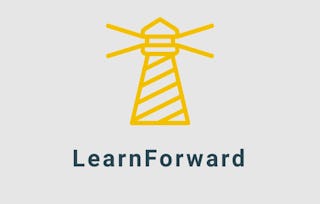本講座のオンライン・セッションは、ナレッジ・セッション、スキル・セッション、ストーリー・セッションの3部構成になっています。ナレッジ・セッションでは、「インタラクティブ」な学びを促す教育のあり方について学びます。またスキル・セッションでは、演劇・表現の観点から、参加者が主体的に学ぶ場を作るための技法を学びます。さらに、ストーリー・セッションでは、各領域で第一線を走る研究者・実践者たちが、「教えること」にいかに向き合い、実践してきたのかを学びます。大学院生や大学教員のみならず、初中等教育の教員、企業の教育担当者の方など「教えること」に携わるすべての方に向けたコンテンツとなっております。

Interactive Teaching(インタラクティブ・ティーチング)

54 reviews
Recommended experience
What you'll learn
アクティブラーニングの技法やモチベーションの理論、評価方法など「教える」ために基礎的な知識・スキルを身につける
To acquire basic teaching knowledge and skills (e.g. active learning techniques)
学習者が主体的に学べるような授業づくりができるようになる
To be able to design classes where learners can learn proactively
Skills you'll gain
Details to know

Add to your LinkedIn profile
See how employees at top companies are mastering in-demand skills

There are 8 modules in this course
アクティブ・ラーニングとは何かについて理解を深め、その現状について知ることを目標とします。アクティブ・ラーニングの様々な適用手法について学びながら、その背景や実施状況の特徴、効果、今後の展望について学びます。また、授業での教員の自己紹介の意義について考えます。今週のスキルセッションでは、「肝心なものは目に見えない」というテーマで、今後のスキルセッションについて概観し、ストーリーセッションでは「理系分野のアクティブ・ラーニング」と「ケースメソッドを用いた学習」というテーマでお話を伺います。 You will deepen your understanding of active learning and learn about its current situation. While familiarizing yourself with the various approaches to adopt active learning, you will learn about its background, implementation, effectiveness as well as future prospects. Also, you will reflect on the significance of self-introduction of academic staff. This week’s Skill Session gives you an overview of Skill Sessions in upcoming weeks under the theme of “The Crucial Point Is Invisible.” The Story Sessions for this week are about “Active Learning in Science” and “Case Method in Business Administration.”
What's included
11 videos8 readings1 assignment1 discussion prompt
「Think-Pair-Share」「ジグソー法」「ポスターツアー」「ピア・インストラクション」という4つのアクティブ・ラーニングの技法の特徴と実施方法について学びます。さらに、グループワークの際に生じうる問題事例や解決法について考えます。今週のスキルセッションのテーマは「空間をつくる」、ストーリーセッションは「学生の議論をうながすには?」と「協調学習、高校の授業をインタラクティブに!」です。 You will learn about the characteristics and implementation of four active learning techniques: “Think-Pair-Share”, “Jigsaw Method”, “Poster Tour” and “Peer Instruction.” Also, you will work on potential problems that may occur during group work in class and on ways to solve these problems. This week’s Skill Session theme is “Creating Space” and Story Session themes for this week are “How to Foster Discussion” and “Collaborative Learning in High School.”
What's included
10 videos5 readings1 assignment1 discussion prompt
モチベーションを高める要因の「目標の主観的価値」「予期」「環境」について理解します。また、学生の熟達および教員による支援方法について知り、効果的な練習とフィードバックのデザインの仕方、その際の注意点について学びます。さらに、大きなスキルを分解し、全体的に統合するデザイン方法を演習します。今週のスキルセッションのテーマは「伝わる喋り方」、ストーリーセッションは「栄養学を教える― 一歩一歩学びをつくる」と「学びの転換-プロジェクトからパッションへ」です。 You will learn about the factors that increase motivation, including “subjective value of goals”, “expectancies”, and “environment”. You will also learn about student mastery and how instructors can assist with it. This lecture will introduce how to design effective exercises and feedback, as well as things to keep in mind. By breaking down skills into components, you will practice implementing an overall integrated way of design in teaching. The theme of this week’s Skill Session is “Effective Speaking” and Story Session themes are “Nutrition Physiology Education” and “From Project-based Learning to Passion-based Learning.”
What's included
10 videos5 readings1 assignment1 discussion prompt
クラス・デザインの意義とADDIEモデルの各要素について学びます。90分クラス構成の基本形となるガニエの「9教授事象」を理解します。さらに、クラス・デザインシート作成の意義およびシートの構成について理解します。今週のスキルセッションのテーマは「まずは自分の緊張をほぐす」、ストーリーセッションは「目で見て、耳で聞く英語教育」と「教え方・学び方の日米英比較」です。 You will learn about the purpose of class design and explore the five stages of the ADDIE model. Gagnein’s “Nine Events of Instruction” will be introduced to help you design a 90-minute class. In addition, the purpose of writing a class design sheet and its structure will be explained. The theme of this week’s skill session is “Staying Relaxed”, and Story Session themes are “English Language Education” and “Comparing the U.S. and U.K. Education.”
What's included
10 videos6 readings1 assignment1 discussion prompt
シラバスの目的や役割を確認し、学習を促すためのシラバス作成について理解を深めます。授業の目的と目標の違いや、授業計画の立て方について学びます。次に授業の構造の可視化の重要性について理解し、グラフィック・シラバスの活用法について学びます。最後に評価情報の意義と書き方について学びます。今週のスキルセッションのテーマは「リアクションを生み出すために」、ストーリーセッションは「大学教育と大学生の日独比較」と「学生とともに創る授業」です。 You will enhance your understanding of designing a syllabus that promotes student learning, while learning the purposes and roles of a syllabus. The differences between learning goals and objectives as well as approaches to syllabus design will be demonstrated. After that, you will gain a better understanding of the significance of class structure visualization, as well as ways to utilize a graphic syllabus in class. Lastly, you will learn about the significance of evaluation together with guidance on the way of writing evaluation. The theme of this week’s Skill Session is “Eliciting Techniques” and Story Session themes are “Comparing Higher Education in Germany and in Japan” and “Involving Students in Lesson Planning.”
What's included
11 videos5 readings1 assignment1 discussion prompt
学生の評価の意義や方法の種類について学び、形成的評価と総括的評価を比較します。また、何がよい評価なのかを判断するための「信頼性」「妥当性」「客観性」「効率性」といった概念について学びます。さらに、レポートや実技など客観的評価が難しい課題の評価方法としてルーブリックについて学びます。今週のスキルセッションでは、人前で話すコツについて質疑応答形式で学び、ストーリーセッションでは「研究の駆動力にもなる「おもろい教育」を目指して」と「対話を使った組織変革・人材育成」というテーマでお話を伺います。 You will discuss the significance of evaluation and different types of assessments, and then compare formative assessment and summative assessment. You will learn concepts such as "reliability", "validity", "objectivity", and "efficiency" to determine what is a good evaluation. Furthermore, this lecture will introduce rubrics as an evaluation method for assignments that are difficult to evaluate objectively, such as reports and practicum. In Skill Session for this week, you will learn tips for public speaking in Q&A format. This week’s Story Sessions are about “Learning from Teaching” and “Organizational Change and Human Resource Development through Dialogue.”
What's included
10 videos5 readings1 assignment1 discussion prompt
大学全入時代という背景や技術の進歩などにより大学や教員に求められることは変わりつつあります。大学教員の責務である「教育」「研究」「管理運営」「社会貢献」の4つについて学びます。さらに、ポートフォリオを導入し、理想の教員像を構築します。今週のスキルセッションでは、クラスとのコミュニケーションのために必要なスキルを質疑応答形式で学び、ストーリーセッションでは「MOOCと反転授業-大学はどうなるか」と「演劇を授業に活かす」というテーマでお話を伺います。 In the era of open admission in which educational technology advances rapidly, what is expected from university and its faculty members is changing. You will learn about 4 duties of a faculty member: education, research, operational management, and social contribution. You will be asked to reflect on your ideal image of a faculty member, using portfolios. In this week’s Skill Session, you will learn important skills to communicate with students in class in Q&A format. Story Session themes for this week are “MOOC and Flipped Classroom at the University” and “Using Drama in the Classroom.”
What's included
9 videos5 readings1 assignment1 discussion prompt
構造化アカデミックポートフォリオ(SAP)は、大学教員としての活動について構造的に内省を行い、これまでの活動を整理し、目標を明確に定めるために重要です。今回はSAPを構成する「教育」「研究」「サービス」の各項目について手順をおって作成していきます。今週のスキルセッションのテーマは「失敗を恐れるな」、ストーリーセッションは「大学の歴史から大学教員のこれからを考える」です。 Structured Academic Portfolio (SAP) is important documentation for faculty members to reflect on their activities comprehensively and clearly set their own goals. This lecture will look into each component of SAP (education, research and service sections) and lead you go through the creation process step-by-step. The topic of this week’s Skill Session is “Don't be Afraid of Making Mistakes” and this week’s Story Session theme is “The Future of University Academic Staff.”
What's included
9 videos6 readings1 assignment1 peer review1 discussion prompt
Instructor

Offered by
Explore more from Education
 Status: Preview
Status: PreviewUniversity of London
 Status: Preview
Status: PreviewThe University of Tokyo
Why people choose Coursera for their career

Felipe M.

Jennifer J.

Larry W.

Chaitanya A.
Learner reviews
- 5 stars
92.59%
- 4 stars
3.70%
- 3 stars
3.70%
- 2 stars
0%
- 1 star
0%
Showing 3 of 54
Reviewed on Jan 22, 2023
zooom学習でしたが楽しく学べました。カリキュラムの構成も変化がありあっという間のプログラムでした。ありがとうございます。
Reviewed on Jan 26, 2025
日本語教師です。年の初めにコースを取り始め、一年を通してコースで学んだことを自分の授業で実施してみました。有意義な1年にできたと思います。色々な分野の様々な講師の方々のお話もあり、とても興味深く、とても勉強になりました。
Reviewed on Aug 2, 2023
具体的な手法が学べるほか、インタビュー動画も参考になるものが多く、今後の自分の実践に活かしていきたいと思う内容が多々あるコースでした。

Open new doors with Coursera Plus
Unlimited access to 10,000+ world-class courses, hands-on projects, and job-ready certificate programs - all included in your subscription
Advance your career with an online degree
Earn a degree from world-class universities - 100% online
Join over 3,400 global companies that choose Coursera for Business
Upskill your employees to excel in the digital economy
Frequently asked questions
To access the course materials, assignments and to earn a Certificate, you will need to purchase the Certificate experience when you enroll in a course. You can try a Free Trial instead, or apply for Financial Aid. The course may offer 'Full Course, No Certificate' instead. This option lets you see all course materials, submit required assessments, and get a final grade. This also means that you will not be able to purchase a Certificate experience.
When you purchase a Certificate you get access to all course materials, including graded assignments. Upon completing the course, your electronic Certificate will be added to your Accomplishments page - from there, you can print your Certificate or add it to your LinkedIn profile.
Yes. In select learning programs, you can apply for financial aid or a scholarship if you can’t afford the enrollment fee. If fin aid or scholarship is available for your learning program selection, you’ll find a link to apply on the description page.
More questions
Financial aid available,
¹ Some assignments in this course are AI-graded. For these assignments, your data will be used in accordance with Coursera's Privacy Notice.



